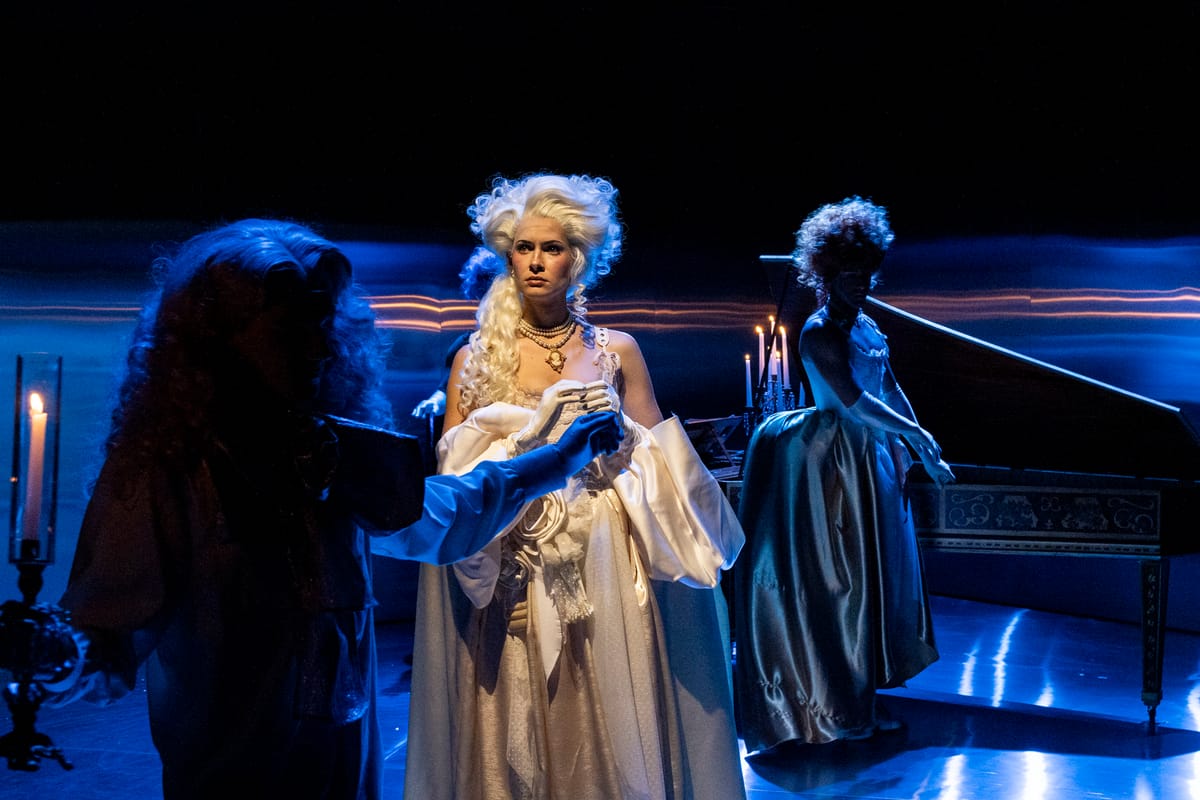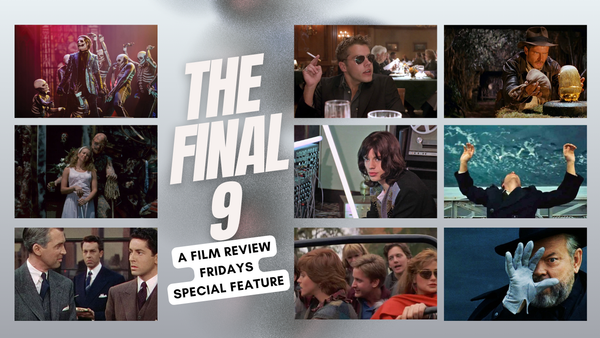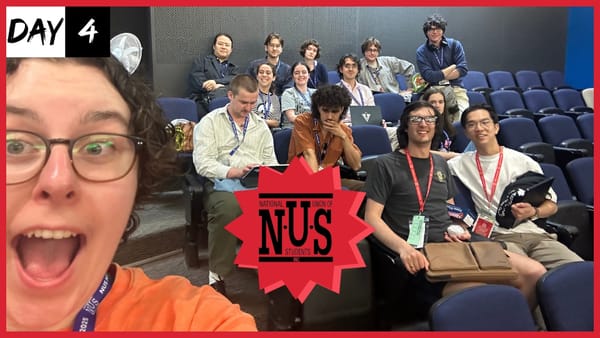Trans Joy Centre Stage: Orlando Review

What do you get when you cross time travel, gender-bending, and onstage rollerskating?
Well, Orlando, of course. The latest offering to grace Belvoir St Theatre’s iconic corner stage pulls out all the stops to bring Virginia Woolf’s 1928 novel to life, with a modern makeover. Featuring an all-star cast, decadent design, and hopeful story, Carissa Licciardello and Elsie Yager’s new adaptation of Orlando gently touches the heart of anyone who’s ever felt constricted by gender – and it has a whole lot of fun in the process.
Woolf’s Orlando is styled as a biography, following the titular character throughout their life. We first meet Orlando as a young boy during the reign of Queen Elizabeth I. Orlando goes on many great adventures, and by the end of the story is a woman in her mid-thirties in 1928. How is any of this explained? Good question! It isn’t. Orlando simply exists, as various selves, for over 300 years – writing poetry, getting out of scrapes, and generally doing whatever they want. All manner of wild and inexplicable things happen in the book: for example, when Orlando wakes up having suddenly transformed into a woman, it’s after a multi-day sleep during which a revolution has occurred without Orlando’s knowledge. In Belvoir’s version, the plot is pared down to a few key moments, keeping the focus on ideas of love, sexuality, gender, and fluidity. With the help of four trans and genderqueer performers sharing the titular role, we meet Orlando at four points in their (and England’s) history, as they strike out in search of life and a lover.
Bringing Orlando’s world to life are set designer David Fleischer, lighting designer Nick Schlieper, and costume designer Ella Butler (with Hailley Hunt as associate costume designer). The visuals of Orlando are nothing short of magical: the otherworldly mirrored stage, a musical number delivered from atop a massive piano, a whole section of the play performed on rollerskates, fake snow, real fire, and more. And that’s not even mentioning the costumes – of which there are many, all of them gorgeous. From Renaissance-inspired celestial bodies and court jesters, to opulent ballgowns, to a series of Victorian-era weddings/funerals, and right through to the modern era, every second of Orlando is an absolute visual feast, with Belvoir’s characteristic intimacy and handcrafted feeling woven throughout. It feels like a fitting realisation of Woolf’s lush, micro-detailed prose.
The four actors playing Orlando – Shannen Alyce Quan, Janet Anderson, Zarif, and Nic Prior – each deliver beautiful, emotive performances, capturing Orlando’s deep sensitivity and wild sense of adventure in equal measure, plus a range of cheeky side characters. There’s a sense of cohesion between all four Orlandos, making it easy to believe that this is the same character at different stages in their life, with whimsical Doctor Who-esque transitions between each one.
Playing Orlando’s various love interests is Emily Havea, whose mix of over-the-top bravado and careful tenderness, along with her powerful singing voice, just about steals the show – and makes it incredibly easy to understand what Orlando sees in her. Nyx Calder as Nicholas Greene and others drives some of the more serious plot points, bringing appropriate gravitas to these roles as well as being unafraid to embrace the silliness of some of their other characters.
Due to an injury, Amber McMahon as Queen Elizabeth and others was sadly unable to go on at the performance I saw, but the show was saved by Belvoir frequent flyer Ariadne Sgouros, who delivered a thoroughly entertaining script-in-hand performance in her place. If it weren’t for the lack of costumes, it would be nearly impossible to tell that she was called in at such short notice.
The novel Orlando ends in 1928 (specifically, on the exact day of its publication), with Orlando navigating what was at the time the present day: driving a car, visiting the department store. The play replaces this scene with one set in 2025, placing Orlando at a busy tube station, watching people come and go. To us, these characters are ordinary. They might talk, act, or dress like us. To Orlando, though, each of them represents a world of possibility: confident, ambitious, expressing their gender and sexuality however they choose. It would have been easy to make this scene feel ham-fisted or contrived, like it was meant as fan service or direct address. But Orlando barely speaks, with the audience left to parse what they could possibly be feeling through Prior’s awestruck expression alone. We’re invited to view our world through their lens, having seen the intense rigidity and repression they’ve lived through up to this point. This says everything it needs to say to bring Orlando to a natural, satisfying conclusion, without falling into the trap of feeling as though it was intended for the audience rather than for Orlando themself.
Woolf dedicated Orlando to Vita Sackville-West: a love letter still being read almost a century later. Licciardello and Yager’s new stage adaptation overflows with queer and trans joy, treating its characters and audience alike with the utmost care and affirmation. It feels like a natural extension of Orlando’s ideas into the 21st century – but it’s also a brilliant piece of theatre in its own right. The gorgeous design and deliberate use of Belvoir’s unique space is a perfect example of what theatre can look like, occupied by a spectacular cast breathing life into their characters with an abundance of heart and a flair for the camp. Until something as special and personal as this comes around again, I’ll be crossing my fingers and toes for a return season.




